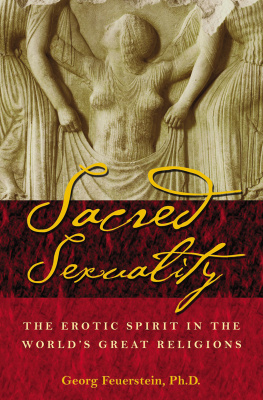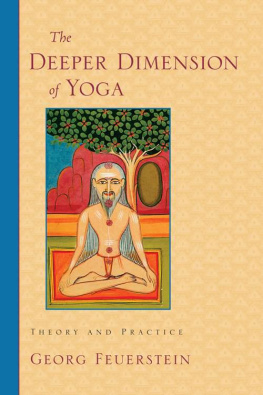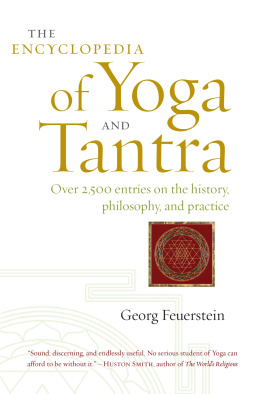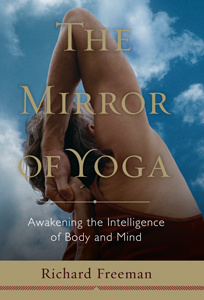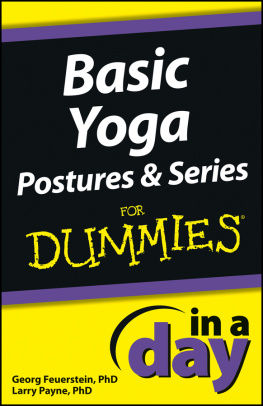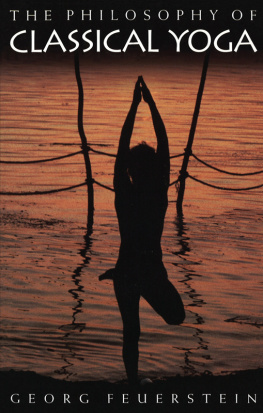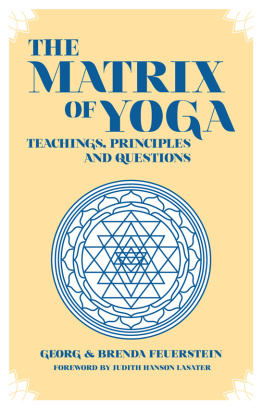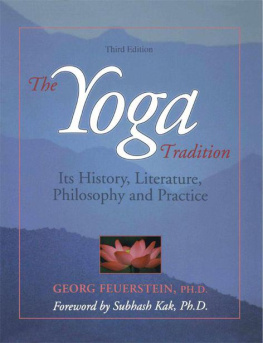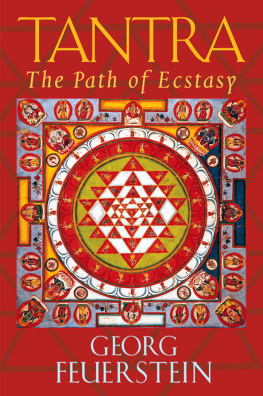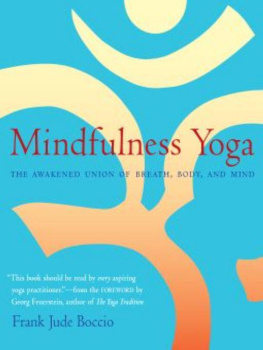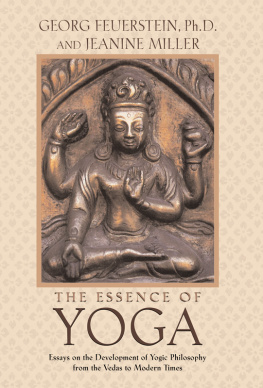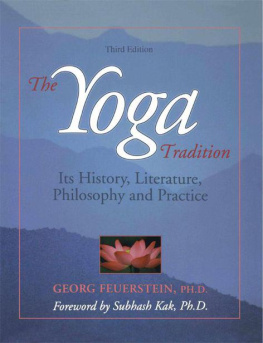Georg Feuerstein - Holy madness : spirituality, crazy-wise teachers, and enlightenment
Here you can read online Georg Feuerstein - Holy madness : spirituality, crazy-wise teachers, and enlightenment full text of the book (entire story) in english for free. Download pdf and epub, get meaning, cover and reviews about this ebook. City: Prescott, Ariz, year: 2006, publisher: Hohm Press, genre: Religion. Description of the work, (preface) as well as reviews are available. Best literature library LitArk.com created for fans of good reading and offers a wide selection of genres:
Romance novel
Science fiction
Adventure
Detective
Science
History
Home and family
Prose
Art
Politics
Computer
Non-fiction
Religion
Business
Children
Humor
Choose a favorite category and find really read worthwhile books. Enjoy immersion in the world of imagination, feel the emotions of the characters or learn something new for yourself, make an fascinating discovery.

- Book:Holy madness : spirituality, crazy-wise teachers, and enlightenment
- Author:
- Publisher:Hohm Press
- Genre:
- Year:2006
- City:Prescott, Ariz
- Rating:4 / 5
- Favourites:Add to favourites
- Your mark:
- 80
- 1
- 2
- 3
- 4
- 5
Holy madness : spirituality, crazy-wise teachers, and enlightenment: summary, description and annotation
We offer to read an annotation, description, summary or preface (depends on what the author of the book "Holy madness : spirituality, crazy-wise teachers, and enlightenment" wrote himself). If you haven't found the necessary information about the book — write in the comments, we will try to find it.
Holy madness : spirituality, crazy-wise teachers, and enlightenment — read online for free the complete book (whole text) full work
Below is the text of the book, divided by pages. System saving the place of the last page read, allows you to conveniently read the book "Holy madness : spirituality, crazy-wise teachers, and enlightenment" online for free, without having to search again every time where you left off. Put a bookmark, and you can go to the page where you finished reading at any time.
Font size:
Interval:
Bookmark:
HOLY MADNESS
HOLY MADNESS
Spirituality, Crazy-Wise Teachers,
and Enlightenment
Revised and Expanded Edition
Georg Feuerstein
Hohm Press
Chino Valley, Arizona
Georg Feuerstein, 1990, 2006
Roger Walsh, foreword, 1990, 2006
All rights reserved. No part of this book may be reproduced in any manner without written permission from the publisher, except in the case of quotes used in critical articles and reviews.
Cover design: Kim Johansen
Layout and design: Tori Bushert
eBook ISBN: 978-1-935387-59-6
HOHM PRESS
P.O. Box 4410
Chino Valley, AZ 86323
800-381-2700
http://www.hohmpress.com
The previous version of this book was published under the title: Holy Madness, The Shock Tactics and Radical Teachings of Crazy-Wise Adepts, Holy Fools and Rascal Gurus , published by Paragon House Publishers, 1991, ISBN: 1-557782-50-4.
The image on the font cover features Mahkla, the wrathful aspect of Avalokiteshvara; reproduced after a thangka in the authors possession.
C O N T E N T S
ix | |
xiii | |
xxi | |
xxiii | |
PART ONE: | |
Chapter 1: | |
Chapter 2: | |
Chapter 3: | |
Chapter 4: | |
PART TWO: | |
Chapter 5: | |
Chapter 6: | |
Chapter 7: | |
Chapter 8: | |
PART THREE: | |
Chapter 9: | |
Chapter 10: | |
Chapter 11: | |
Appendix 1: | |
Appendix 2: | |
Appendix 3: | |
Foreword
By Prof. Roger Walsh, M.D., Ph.D.
One of the first signs of a saint will be the fact
That other people do not know what to make of him.
There is considerable unanimity among the worlds religions, and especially among the contemplative traditions, that we have overestimated our usual state of mind, yet greatly underestimated our potential. These traditions, which together form the perennial philosophy, perennial wisdom, or perennial psychology, consider our usual awareness to be only semiconscious dreams, my, or a consensus trance. Yet these same traditions claim that we are capable of escaping from this trance and of thereby realizing what has been variously called enlightenment, liberation, salvation, moksha, or awakening.
Needless to say, these claims have evoked strong reactions throughout history, especially in our own time. The most extreme reactions have involved outright dismissal and dramatic idealization. The very possibility of enlightenmentlet alone of the existence of a realm of pure Consciousness, Mind, Spirit, or Geist, which enlightenment is said to revealhas been denied on metaphysical grounds by philosophies such as materialism, Marxism, and scientism. Likewise, claims for mystical insights and liberation have been pathologized by perspectives such as those of psychoanalysis and what William James called medical materialism. In his classic The Varieties of Religious Experience, James commented as follows:
Medical materialism seems indeed a good appellation for the too simple-minded system of thought, which we are considering. Medical materialism finishes up Saint Paul by calling his vision on the road to Damascus a discharging lesion of the occipital cortex, he being an epileptic. It snuffs out Saint Teresa as an hysteric, Saint Frances of Assisi as an hereditary degenerate. George Foxs discontent with the shams of his age and his pining for spiritual veracity, it treats as a symptom of a disordered colon... All such mental overtensions, it says, are, when you come to the bottom of the matter... due to the perverted action of various glands which physiology will yet discover.
At the other extreme, spiritual practitioners have sometimes been idealized to the point where their humanity and fallibility are completely denied. In such cases the teacher can do no wrong and everything he or she does is interpreted as a divinely inspired infallible teaching for the benefit of others. The dangers of this attitude have been the delight of our mass media for years.
Yet on balance, while it is hard to accept spiritual figures, or even spiritual masters, as infallible, it is equally difficult to dismiss them out of hand. After all, the great saints and sages have been said to represent the highest levels of human development and to have had the greatest impact on human history. So at least said the historian Arnold Toynbee, the author Leo Tolstoy, the philosophers Henri Bergson, Arthur Schopenhauer, and Friedrich Nietzsche, and the psychologists William James, Abraham Maslow, and Ken Wilber, among others. As Toynbee observed, Who are the greatest benefactors of the living generation of mankind? I should say: Confucius and Lao Tzu, the Buddha, the Prophets of Israel and Judah, Zoroaster, Jesus, Mohammed and Socrates.
Assuming that alongside numbers of imposters, true saints and sages do exist and have realized something profound about their nature and ours, how are we to understand our reactions to them? After all, in addition to inspiring literally billions of people, they have also been tortured, poisoned, crucified, and burned, often by law-abiding citizens seeking to protect society from their influence.
The question is complicated by the fact that some religious practitioners and masters have clearly seemed bizarre by conventional standards. Some appear to have deliberately flouted convention, provoked authorities, and offended their listeners. Indeed some of them have appeared so bizarre as to have been labeled by such names as holy fools, crazy-wisdom teachers, or god intoxicants.
What are we to make of these paradoxical people? Clearly, our answers have enormous implications for our understanding of human nature, potential, and pathology, of religion, enlightenment, and sainthood, and of the effects of contemplative practices. Yet these paradoxical people have been subject to almost no serious research.
Here at last is a book that studies them carefully, confronts the paradoxes they present, ranges over a broad expanse of traditions, cultures, and times, and is open to both the potentials and the pitfalls of spiritual practice. Here is a book that seeks neither to idealize nor to pathologize but rather to acknowledge and understand both the benign and the bizarre behavior of those subgroups of spiritual imposters, practitioners, and even masters who display holy madness.
And who better to do this than Georg Feuerstein, a writer of enormous breadth of scholarship, a person acknowledged as one of the foremost authorities on Yoga, and yet more than just a scholar, a scholar and a practitioner. Feuerstein has practiced Yoga and other contemplative disciplines of which he writes and that is an important qualification. For it is becoming increasingly clear, both from a growing body of psychological and philosophical theory as well as from personal accounts, that ones intellectual understanding of contemplative practices, traditions, psychologies, and philosophies may be significantly enhanced by, and even dependent on, ones degree of personal experience with the practices. While there is much to be said for detached objectivity in many areas of research, it seems that in the study of contemplative practices and practitioners, careful objectivity may be best coupled with personal experience.
Font size:
Interval:
Bookmark:
Similar books «Holy madness : spirituality, crazy-wise teachers, and enlightenment»
Look at similar books to Holy madness : spirituality, crazy-wise teachers, and enlightenment. We have selected literature similar in name and meaning in the hope of providing readers with more options to find new, interesting, not yet read works.
Discussion, reviews of the book Holy madness : spirituality, crazy-wise teachers, and enlightenment and just readers' own opinions. Leave your comments, write what you think about the work, its meaning or the main characters. Specify what exactly you liked and what you didn't like, and why you think so.

